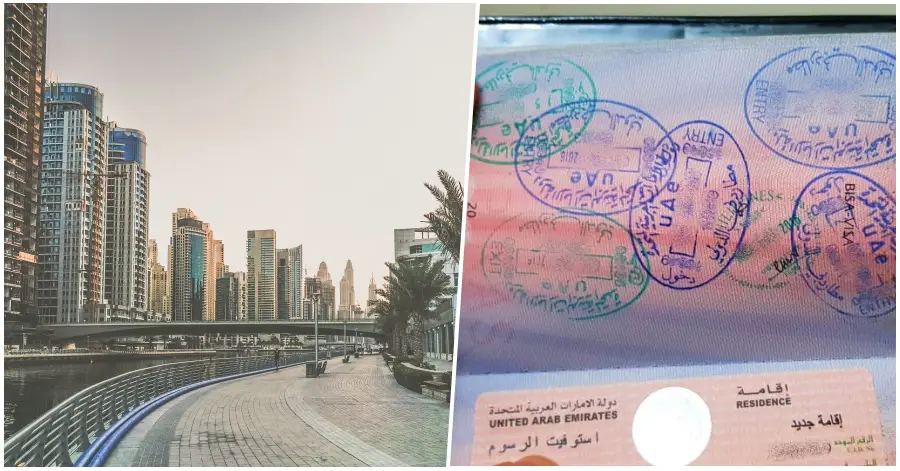If you know someone or if you are among those who lost their jobs after March 1, you will either have to change their visa status or leave the country to avoid incurring overstay fines after the cancellation grace period, a government official clarified.
Also Read: 5 Steps: How to Check UAE Visa Status Online
As per the announcement by the Federal Authority of Identity and Citizenship, residents whose visas have expired after March 1, 2020, will have an extension of the visa accorded to them until the end of December 2020, as part of the country’s measures to support the public to mitigate the repercussions of the virus. However, this does not include those who have canceled their residency visas.
Contents
Got Your UAE Visa Cancelled? Know Your Options Here
According to a report shared by the Gulf News, people with canceled residency permits need to change their status by getting a new residency or visit visa while they are inside the country to change their status or leave the country before the one-month grace period expires.
The UAE government’s decision for the visa extension or fine waiver aims to help people affected by COVID-19 circumstances. The announcement maintains that expired visa and residency permits after March 1 this year will be extended till the end of December 2020 to give the visa holders time to change their status or leave the UAE.
This, however, does not include residents who have canceled their permits after March 1, 2020, and they need to change their status by getting a new work visa or a visit visa while they are inside the UAE to avoid fines, an official explained.
The good news for those who had their visas canceled after March 1 is that they are given three options to avoid paying fines. These are:
Option #1: Get a New Employment Visa
The best-case scenario is when you are given a job offer from another company and are able yo apply for an employment visa.
In this case, however, you would need to put your family’s visa on hold and make sure that your visa from the previous employer has been canceled and that your new employer can apply for your visa within the grace period (maximum of 28 days from the date of cancelation of your work permit). Moreover, the date will be explicitly stated in your cancelation paper, so do take note of it.
Option #2: Apply for a Visit Visa
Although the government has stopped issuing visit visas for people outside of the UAE, residents within the UAE may still apply for this document.
According to Mohammed Shah, general manager at Regal Tours, Dubai, the process is quite simple: Residents will need to personally apply for a visit visa for themselves and their dependents who hold the same visa as them through a travel agent.
Shah explained that applying for a visit visa through an agent will only require them to submit a copy of each applicant’s passport. This will cost around AED 2,200 for a 100-day visa, which is also roughly the same price as a two- or three-month visa. This will only take about two days to process, explained Shah.
Option #3: Exit the Country.
The last option would be to leave the UAE via repatriation flights announced to your home country. This has to be timed within the grace period set by the UAE government to avoid incurring any visa fines.
Overstay visa fines are calculated as follows:
- AED 125 for the first day
- AED 25 for every succeeding day
And while the UAE government has helped those who have been staying illegally from before March 1, 2020, by waiving their fines if they leave the country before August 18, officials advise residents who fall in this category, to call government hotlines and check to get a proper answer as sometimes the situation may be different.
ALSO READ: UAE announces amnesty details for visa violators
